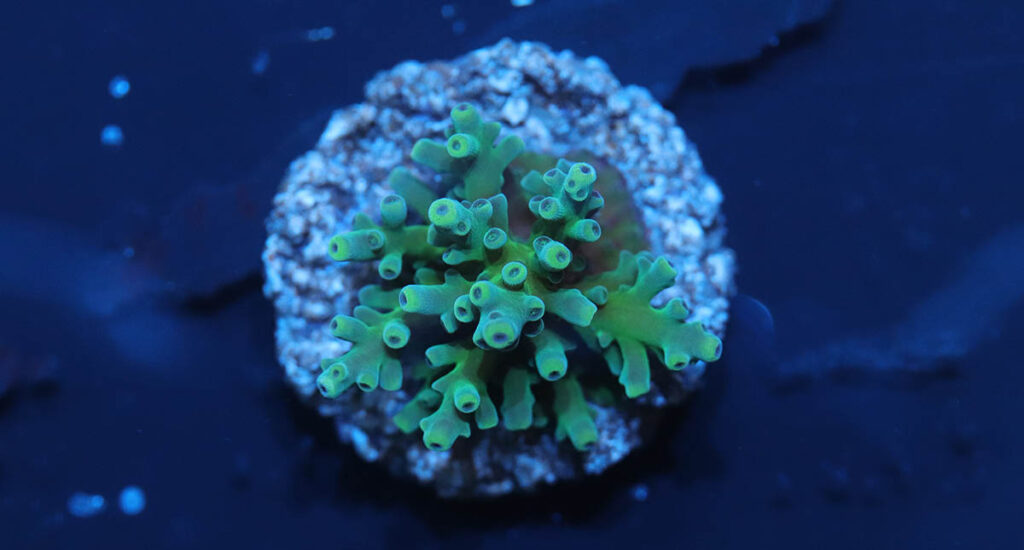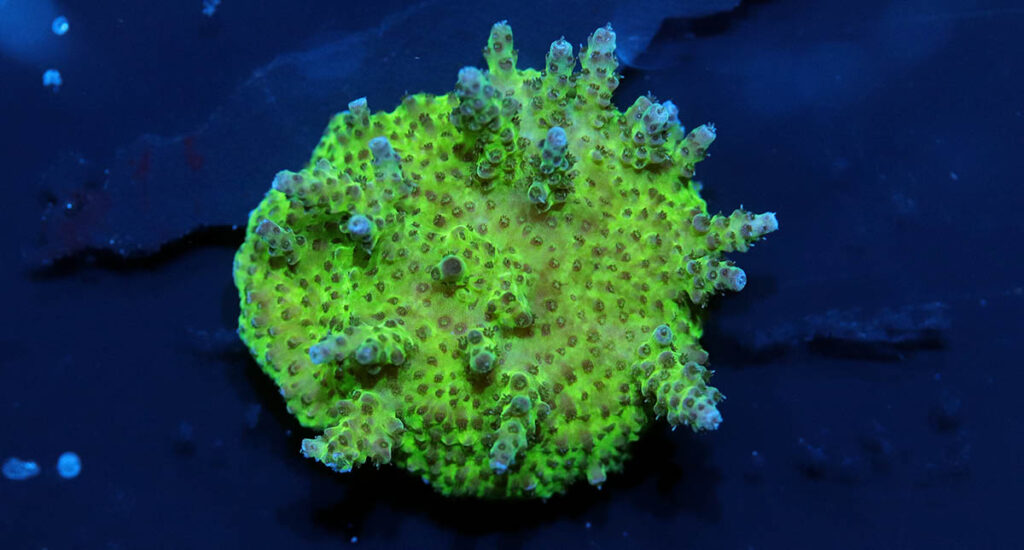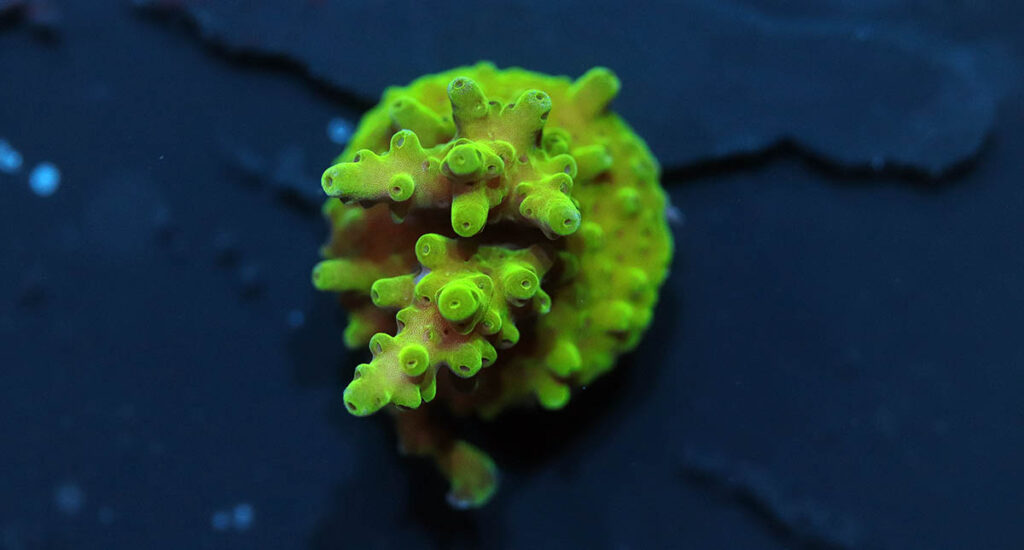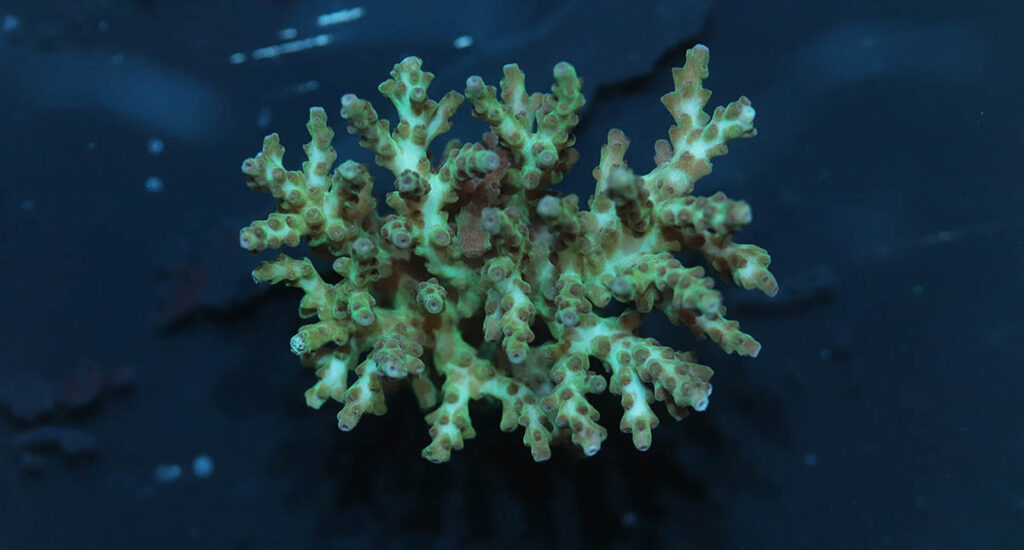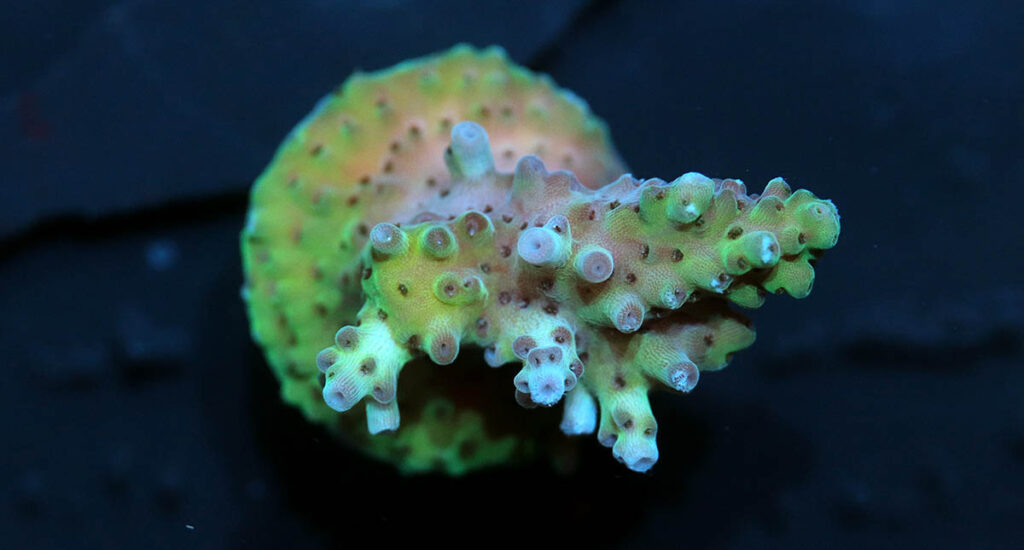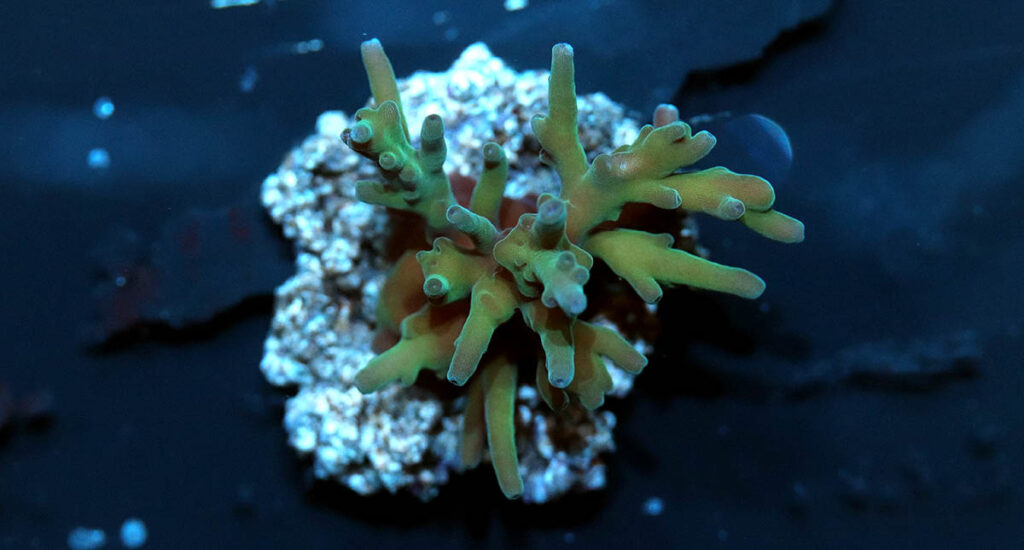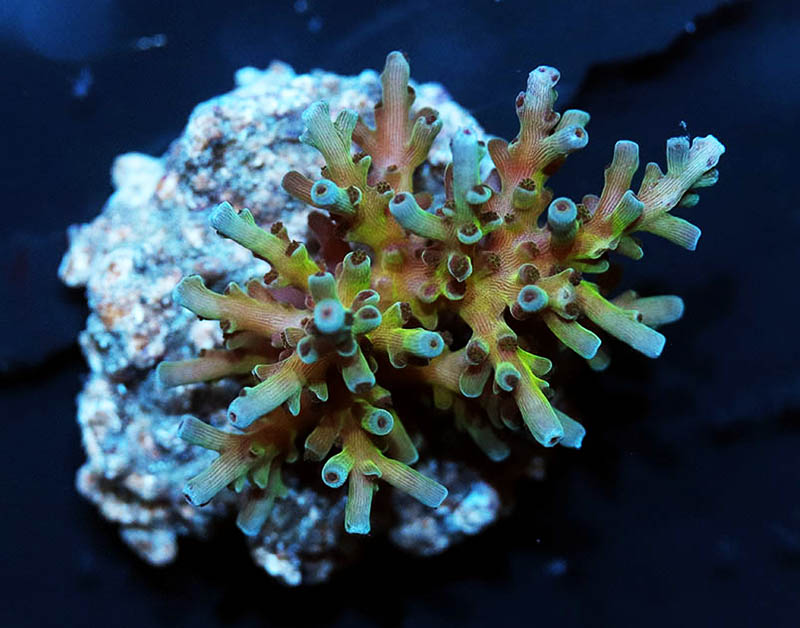
The island nation of Palau has gained recent attention for the strong, forward-thinking stewardship of its ocean resources. In 2015, the nation unanimously enacted the Palau National Marine Sanctuary Act, which created what is generally regarded as one of the largest marine protected areas (MPAs) in the world. As described by the Pew Trusts, “The sanctuary will fully protect about 80 percent of the nation’s maritime territory. Full protection means that no extractive activities, such as fishing or mining, can take place. The reserve covers 500,000 square kilometers (193,000 square miles)—an area bigger than the U.S. state of California.”
What this has meant, for aquarists, is that Palau’s coral reef biodiversity has not been accessible to traditional ornamental marine aquarium fisheries. However, through state-sanctioned modern aquaculture and captive breeding, Tom Bowling and his team at the Biota Group have been able to cultivate and export natively-occurring fishes and invertebrates working at the Biota Marine Life Nursery in Palau. Yes, the Blue Line Clownfish (Amphiprion chrysopterus) and Coral Beauties (Centropyge bispinosa) that originated from the Palau-based facility are the forms endemic to that region. What hasn’t been available from Palau are stony corals.
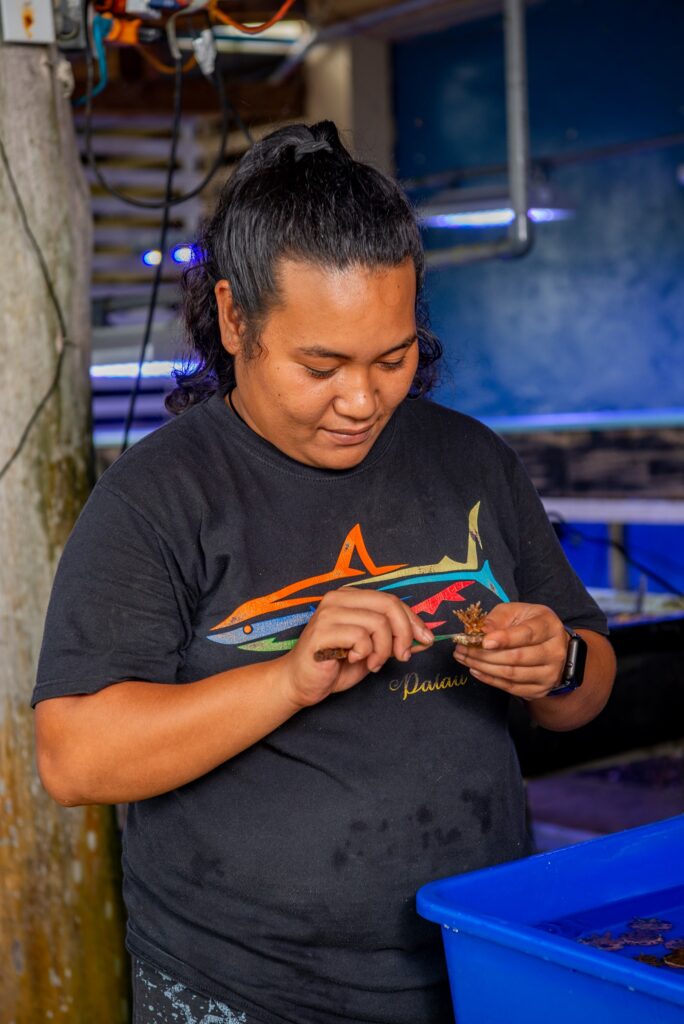
But that has now changed. The result? An entire suite of new aquacultured SPS cultivars is about to enter the marine aquarium trade. The first exports quietly entered the trade earlier this summer and fall, but this November, Biota has made this new offering official!
via Biota Marine Life Nursery, Palau
“MORE exciting news!!! Hard corals are now available from Biota Aquariums!!! We are stoked to be a part of this sustainable move to create jobs with renewable resources in Palau!!! Coral farming can be done with virtually ZERO impact to the wild populations and we have been working with the local fisheries department to ensure accountable and responsible ocean farming. Check our website or speak to your local vendor for details.”
More from the Reef Beef Podcast
While the news was brief on social media, Biota founder Tom Bowling joined cohosts Ben Johnson and Richard Ross on the (slightly not safe for work, PG-13-ish) Reef Beef Podcast, and revealed the new Palauan aquaculture program in much greater detail.
Starting just after the one-hour mark, the big secret was revealed. According to Bowling, “The awesome thing about is, as soon as they approved us and said we could do [coral aquaculture], it created 3 jobs straight away for locals. I literally said, ‘This signature, that’s going to create 3 jobs now, and probably 10 jobs in the future, in the next year.'” Bowling also noted that a percentage of the corals are being used in reef restoration efforts.
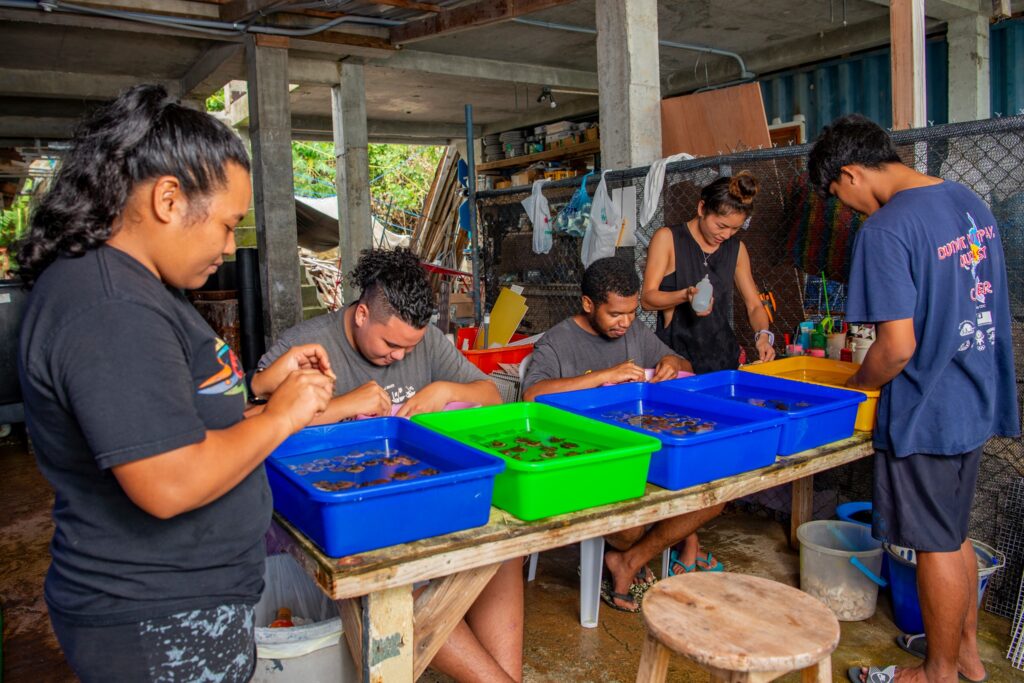
Reef Beef co-host Richard Ross asked Bowling, “For the stony corals that you are shipping…how do you prove that they are cultured…what is the hoop that you have to jump through?”
“The first thing, is we’re shipping [livestock out of Palau] every 2 weeks, so we have inspectors come anyway,” replied Bowling, “and so we involve them in a detailed sense with the process, so they actually see what we’re doing, we take them out, show them where we are getting [the coral] from. Most of those, I should add, the majority of the corals we take, we dive after a big storm for example, or big waves, big swell, and you can literally go anywhere and there’s a ton [of coral fragments] that have fallen down, that are going to roll around and become sand anyway. So that’s our primary broodstock collection method. And then we replant them, let them regrow into full colonies, so they’re already 6 months old, we’ve been planning this for a while. And then from that, we’ll take tips of those, plant those on a cement base, the plugs that we have, and then regrow them. That’s another up to 3 months. And that way we can say that all the matter, all the biological matter that we’re shipping, has been done in our hands, that we’ve grown it, it hasn’t come from the ocean at all.”
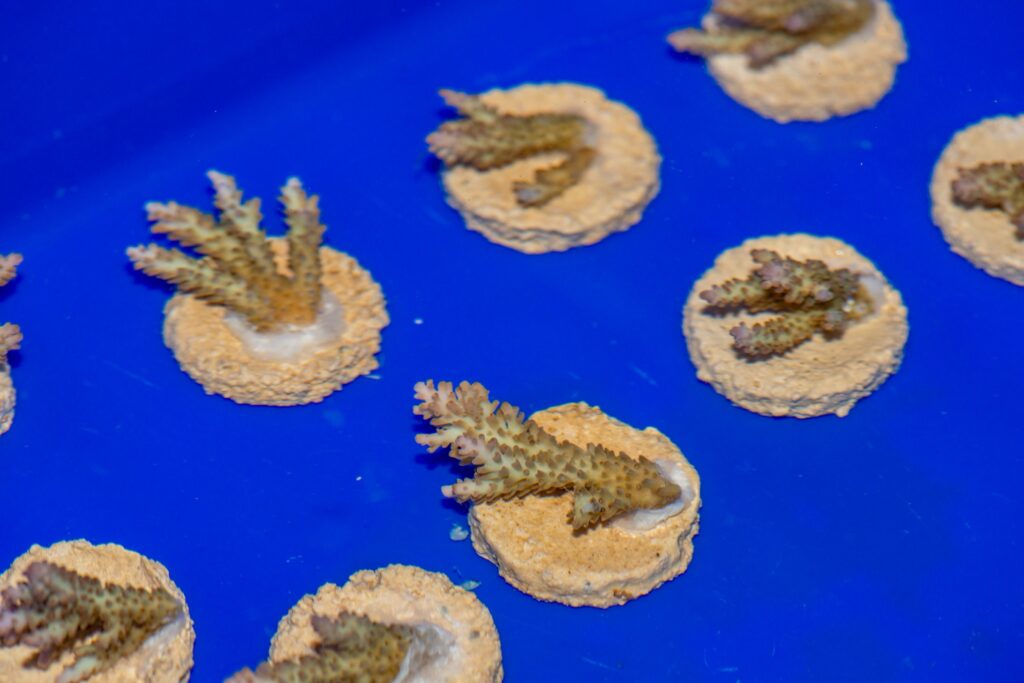
Watch now, and check out some samples of future Acropora varieties being produced in Palau below the video!
Buying Biota’s Palauan Corals
As mentioned above, a few smaller test shipments of these aquacultured corals have already arrived in the United States and were distributed from the Biota Aquariums facility in Florida. Currently, Biota’s aquaculture efforts are focused on producing Acropora. Species identification remains challenging, but hobbyists can expect varieties in several classic growth forms described as staghorn, bottlebrush, tabling, and bushy.
Biota’s aquacultured corals are reportedly being grown under LEDs; Philips CoralCare and EcoTech Marine Radions. This means the corals will arrive at aquarium shops and hobbyists’ homes already well-acclimated to the artificial LED lighting that is prevalent in the reefkeeping hobby.
A Sampling Of Biota’s Palauan Acroporas
